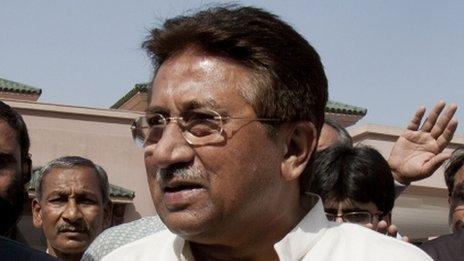Pakistan frees Pervez Musharraf from house arrest
- Published
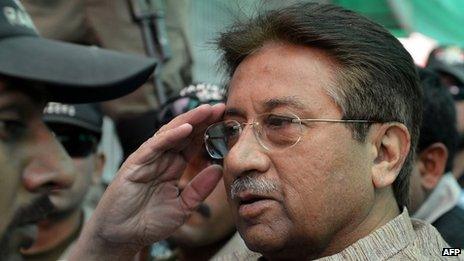
Mr Musharraf hoped to fight elections, but was instead put under house arrest
Pakistan's former military ruler Pervez Musharraf has been released from house arrest and is free to move around the country, prison officials say.
It comes days after he was bailed over the 2007 army operation to oust militants from Islamabad's Red Mosque - the last legal case against him.
But the former general remains on a government exit control list and cannot leave the country.
It is also unclear if he will leave the house because of threats to his life.
Mr Musharraf's seven-month house arrest was unprecedented in a country which has been ruled by the military for more than half of its history.
Speaking on Monday, his lawyer said Mr Musharraf had no intention of leaving Pakistan. He has consistently maintained that all the charges against him are politically motivated.
Prison official Wajad Ali is quoted by the Associated Press news agency as saying that prison guards were withdrawn on Wednesday night from Mr Musharraf's villa on the outskirts of Islamabad.
Troubled return
On Monday the court approved bail in the case on condition Mr Musharraf paid bonds totalling $2,000 (£1,243).
The operation ordered by Mr Musharraf on the besieged Red Mosque left a cleric and more than 100 others dead, and fuelled a deadly militant insurgency inside Pakistan which rages to this day.
Earlier this year, he returned to Pakistan from self-imposed exile to fight elections - which were won by Nawaz Sharif, the man he ousted in his 1999 coup - but swiftly ran into trouble.
He was barred from running in the general election, and was placed under house arrest in April in the first of a series of cases relating to his time in power from 1999-2008.
He faces murder trials over the assassination of former PM Benazir Bhutto and Baloch tribal leader Nawab Akbar Bugti. He has also been charged over his attempt to sack the higher judiciary in 2007 - he has been bailed in all three of those cases.
Separately, the Sharif government said in June that it planned to try him for treason - but a formal complaint in that case has still to be lodged.
- Published4 November 2013
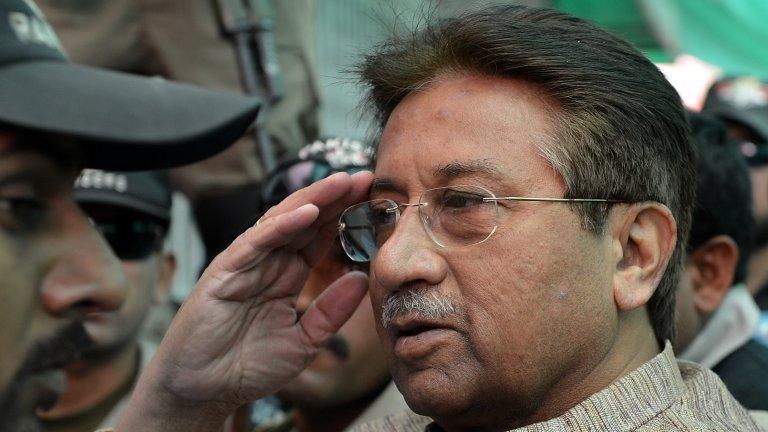
- Published10 October 2013
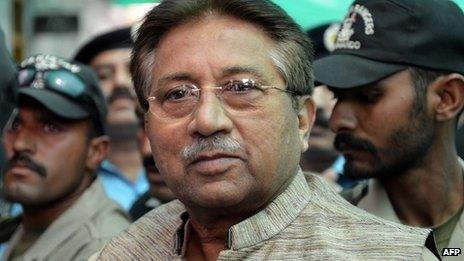
- Published20 August 2013
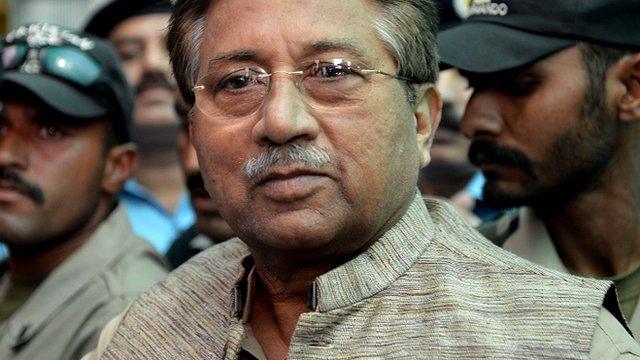
- Published9 October 2013
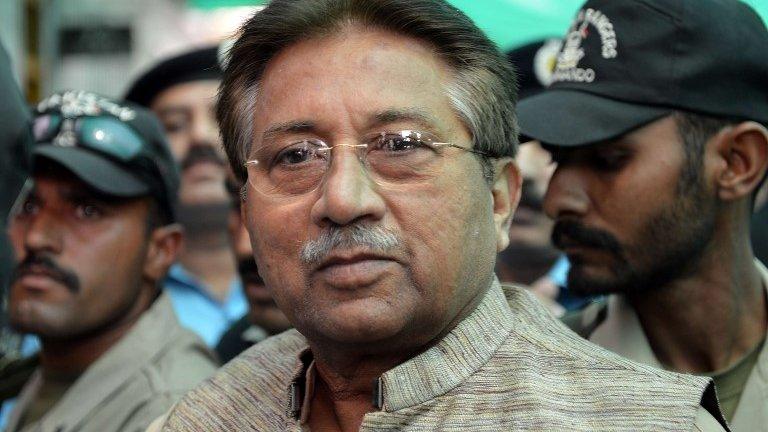
- Published13 January 2020
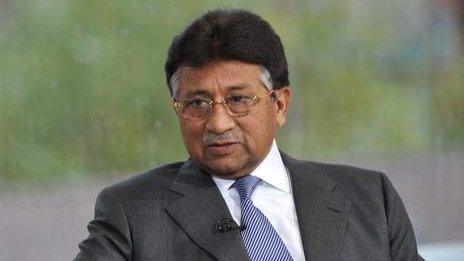
- Published19 April 2013
